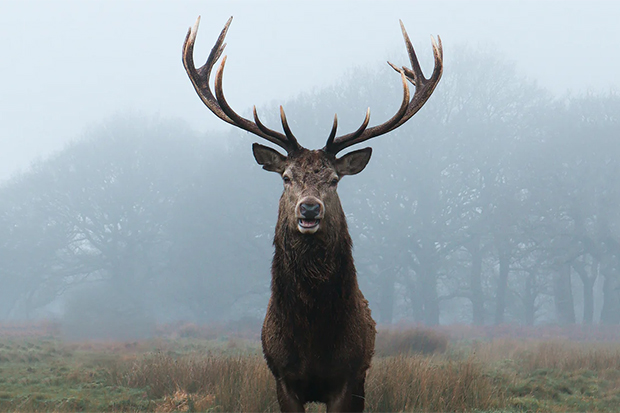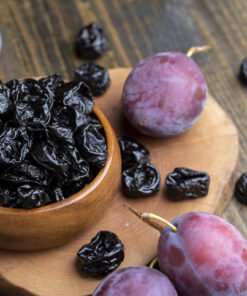
Nearly Deer™ CMP (Fraterworks)
$10.00 – $150.00
Fraterworks Code: 112513A
CAS #: Mixture
Attributes: 100% Vegan
Odor Description: Scientifically reconstructed, this base is a one for one replacer for classic tincture of tonkin deer musk. Incredibly realistic.
Appearance: Colorless liquid
Longevity: Lasts > 400 hours on a smelling strip
Nearly Deer SDS
Nearly Deer IFRA 51 Certificate
Nearly Deer EU Allergens
Description
Fraterworks Code: 112513A
CAS #: Mixture
Attributes: 100% Vegan
Courtesy of Fraterworks: “Nearly Deer is a masterful recreation of Tonkin deer musk tincture. This can be used as a one-for-one replacement in vintage formulas for musk tincture or in modern perfumes to enrich, exalt and fix.
Use in traces to boost performance and longevity or overdose it for a wonderfully natural animalic musk virtually indistinguishable from the real thing.
Tonkin deer musk is banned from international trade leaving a gap in the perfume industry in the range of animalics. Nearly Deer fills that gap.
Nearly Deer has undergone a minor reformulation to create Nearly Deer CMP. This is to bring it into line with the latest IFRA 51 standards and slightly increase the animalic power of the base.”
Appearance: Colorless liquid
Longevity: Lasts > 400 hours on a smelling strip
Nearly Deer SDS
Nearly Deer IFRA 51 Certificate
Nearly Deer EU Allergens
2 reviews for Nearly Deer™ CMP (Fraterworks)
This site uses Akismet to reduce spam. Learn how your comment data is processed.
Related products
-

Rose Oxide BRI
4.00 out of 5$7.50 – $90.00 This product has multiple variants. The options may be chosen on the product page -

Delta Decalactone
5.00 out of 5$4.00 – $45.00 This product has multiple variants. The options may be chosen on the product page -

DMBCB (Dimethyl Benzyl Carbinyl Butyrate)
5.00 out of 5$4.00 – $22.00 This product has multiple variants. The options may be chosen on the product page -

Costus Oliffac 1112
5.00 out of 5$7.50 – $172.00 This product has multiple variants. The options may be chosen on the product page

David Barber –
Big tip of the hat to Jamie Frater on this one. Very smooth animalistic musk without lazily leaning into urine notes. While I have zero legitimate musk deer pod experience, I have played around with all supposed reproductions. If you also found tonquitone intriguing but generally unusable, then you definitely want to grab some of this. It has a diffusivity and lift that makes me immediately think about direct replacement as follows: ambroxan out and nearly deer cmp in. Absolutely ask Christine for a sample on your next PSH order.
mcbride.melanie –
I have experience with deer pods and also deer baits (if you’re ever curious animal musks, get ahold of some baits -they can be a bit ‘cartoony’ but you get the gist). Frater’s ‘nearly’ deer really is quite authentic smelling, powerful, and long lasting (a little bit goes a long way!). I’m using in a project and the only complaint was that they wanted it to appear a little sooner in the evolution (whereas I have it appearing in the drydown, and I it really does hang around!). Regarding the ‘urine’ note, it’s important to remember the differences between animal musks in terms of the location of the musk glands and the chemistry of the musk itself in terms of the animal’s habitat, behaviour, and diet. Beaver castors are harvested from inside the body and are present in both sexes, I have several ‘sets’ and I can say that material smells leathery, earthy, tobacco, and a bit barnyard. But their scent can vary (beavers favourite trees are aspen and birch – sweet birch smells like wintergreen and no doubt a habitat higher in birch than aspen will change the character of the musk). Then there’s Muskrat (another ‘rodent’ musk) is quite unlike castoreum in that it is much more aggressive and not in a good way (I’ll likely not ever put it in a fragrance). Whereas civet musk is closer to that phenylacetic acid, urine, fecal quality because of the location of the scent glands near the anus. Similarly, hyraceum, which is obtained from the rock faces where they pee and poo (in ‘latrines’ has a stronger fecal aspect but depending on the age of the stone, it can vary from a delicate cinnamon-like spicy earthy leathery character to a very acrid, powerful, unpleasant fecal/urine scent (I prefer the former). Deer musk sacs are found on the abdomen and the scent is quite unlike that of rodents or cats. Oh and then there’s skunk (I have that too!), which smells interesting – like a cross between rubber/burning tires, garlic, and gasoline and, well, that’s an acquired taste (I don’t think Christine will be carrying any time soon!).